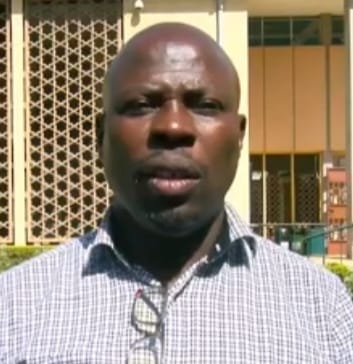The Kenyatta National Hospital (KNH) is under intense public scrutiny after a woman claimed her transplanted kidney was removed under suspicious circumstances.
The patient, who had received the organ from her brother, filed a police report at the Capitol Hill Police Station in Nairobi, accusing the facility of failing to explain what happened.
The family demanded answers, sparking a wave of public outrage. Now, KNH has broken its silence, giving a detailed account of the events.
The hospital insists the book conducted the procedure and that the kidney’s loss was a rare but known medical risk.

KNH Explains the Kidney Rejection Scandal
KNH’s Chief Executive Officer, William Sigilai, issued a statement defending the hospital against allegations of negligence. He outlined the patient’s medical history, the transplant process, and the events that led to the kidney removal in February 2025.
The hospital maintained that every step followed global transplant protocols and that the complication, though tragic, was unavoidable.
How the Kidney Transplant Began
According to KNH, the patient was diagnosed with kidney failure in 2022 and had been undergoing regular haemodialysis at a different facility.
In August 2024, she visited KNH’s transplant clinic with her brother, who had agreed to donate his kidney. Both underwent professional counselling and rigorous medical evaluation by a multidisciplinary team.
By February 12, 2025, all pre-transplant investigations were complete. The two were admitted to KNH for the life-saving procedure.
The surgery was conducted as planned, but immediately after the transplant, the new kidney failed to start functioning. Post-surgery tests showed reduced blood flow to the organ.
Further assessment by the surgical team in the operating theatre determined that the kidney was no longer viable. The doctors decided to remove it immediately to prevent further health complications for the patient.
KNH’s Medical Explanation
The hospital’s statement explained that laboratory analysis confirmed the cause—a blood clot in the transplanted kidney. KNH stressed that this is a recognized but rare complication in kidney transplants.
Medical literature shows that organ rejection and surgical complications remain a global risk. In kidney transplants specifically, such cases account for about 8 per cent worldwide.
KNH also pointed out that in the 2024/2025 financial year, the facility performed 22 kidney transplants, with 21 being successful.
Life After the Failed Transplant
Following the surgery, the patient was discharged on March 5, 2025. KNH advised her to resume dialysis and attend regular check-ups.
On March 11, she returned to the transplant clinic, where she received further guidance on her treatment plan. The hospital assured her family that they would continue monitoring her condition.
Despite KNH’s explanation, the patient and her family were not convinced. They recorded a statement at Capitol Hill Police Station, demanding a full investigation into the matter.
Public reaction on social media was swift, with many Kenyans accusing KNH of failing to protect patients undergoing sensitive surgeries. Others called for more transparency in organ transplant procedures.
KNH insists it remains committed to providing safe, high-quality care. The hospital emphasized that complications, while rare, are part of the inherent risks in organ transplantation.
CEO Sigilai urged the public to trust the expertise of KNH’s medical teams, pointing to the high success rate of transplants carried out at the facility.
The Bigger Picture of Kidney Transplants in Kenya
The scandal has shone a spotlight on the challenges facing organ transplantation in Kenya.
Medical experts note that while the country has made significant strides in transplant medicine, risks like blood clots, organ rejection, and post-surgery infections remain a reality.
Patients and families are now calling for stronger safeguards, better communication, and independent oversight to ensure transparency in such delicate medical procedures.







































